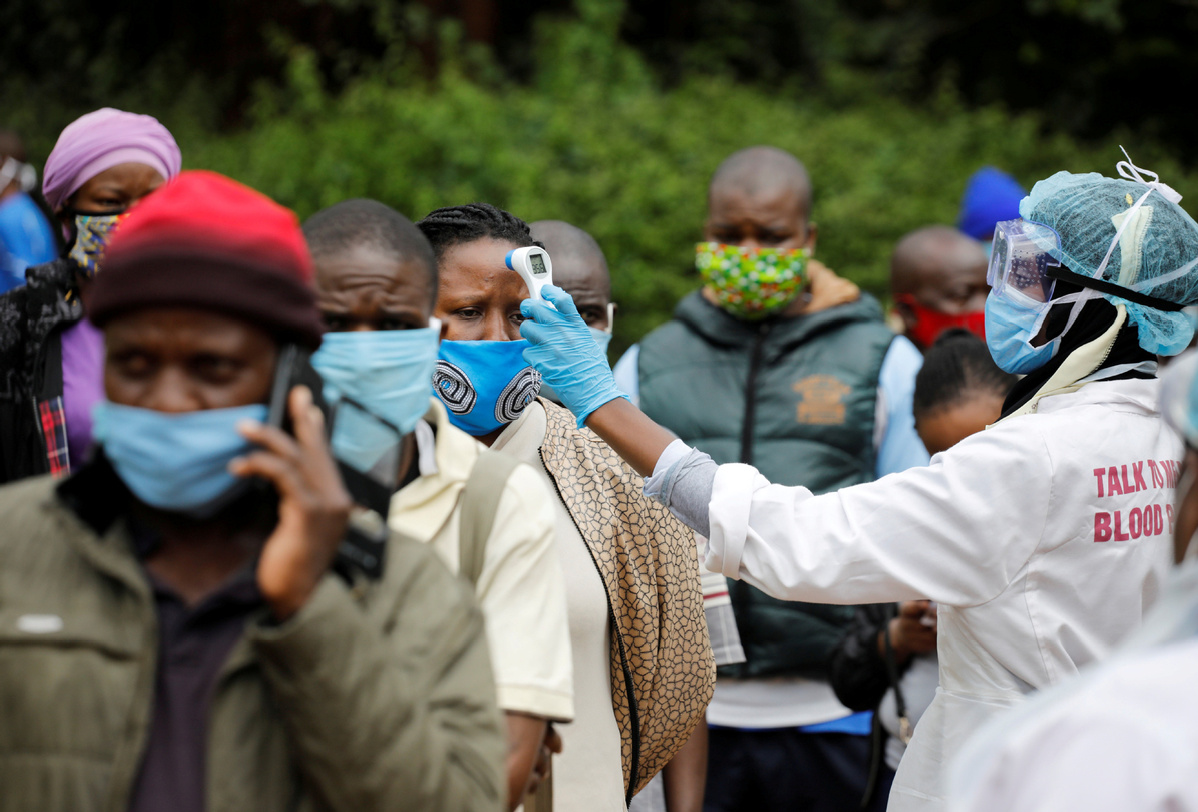Efforts ongoing in Africa to curb spread of coronavirus


Despite the rapid increase of coronavirus in Africa that has so far surpassed 1 million cases, resulting in some overseas countries issuing travel alerts on hotspot African countries, governments across the continent are stepping up efforts to win the battle as gradual reopening of economies continues.
In partnership with international organizations like the World Health Organization, many governments are scaling up training among healthcare workers to build capacity, as well as acquiring equipment to strengthen testing capacity.
This is in addition to beefing up community engagement and health education as several countries start recording community transmissions.
Kenya, which is among the countries with increasing caseloads, is currently equipping its counties' health facilities to deal with a full-blown coronavirus outbreak, following the easing of movement restrictions that has seen opening of county borders and resumption of both domestic and international flights.
Towards that end, Mutahi Kagwe, the cabinet secretary for health, and other officials, have been touring counties across the country to assess their preparedness to handle the outbreak.
To their satisfaction, county governments have set up isolation centers in various health facilities, rolled out sensitization programs on guidelines and protocols for managing and containing the virus, and enhanced surveillance, screening and contact tracing.
In his tour to Kisumu County of Aug 9, Kagwe urged residents in hotspot counties like the capital, Nairobi, to reduce unnecessary travel to rural areas and encouraged Kenyans to observe health and safety measures, like wearing masks and observing social distancing.
In the recent past, Kenya has recorded a surge in caseloads, with daily average infections standing at over 600, a scenario that saw the American government on Sunday issue a travel alert on the east African country.
Similar to Kenya, Nigeria is assessing its public health emergency operation centers for optimization.
"We remain committed towards strengthening sub-national health security, as well as capacity to manage disease outbreaks," the Nigeria Center for Disease Control said in a statement on Sunday.
In Uganda, the government has been distributing facemasks across the country in an effort to curb the spread of the virus that has so far infected over 1,200 people and killed seven. The door-to-door exercise is being coordinated by local community leaders.
Additionally, the country's Ministry of Health, in partnership with the WHO, is training 1,180 health workers across its 54 districts in infection prevention and control to curb the spread of the virus.
According to the WHO regional office for Africa, after training, the health workers will go on to mentor and train other staff within their network.
In Liberia, donations of medical supplies by international organizations have greatly helped the country enhance its coronavirus response.
On Thursday, the country's Ministry of Health received 21 pieces of oxygen concentrators worth $14,280 from the WHO to support its coronavirus response.
The machines will be distributed among the country's 15 political subdivisions to enhance the fight against the virus. This came days after a donation of 20 ventilators worth $699,500 to the ministry by the World Bank.
The government of Botswana has assured the public that necessary coronavirus protocols have been duly activated in the form of contact tracing to ensure the safety and well-being of all staff, family members and the public at large.
The statement follows a confirmation that Kereng Masupu, coordinator of the Presidential Coronavirus Task Team and Mogomotsi Matshaba, scientific advisor to the Presidential Coronavirus Task Team, have contracted coronavirus.
"The Public is further advised to vigilantly observe all coronavirus regulations, particularly those concerning limiting movement, social distancing, washing of hands frequently with soap and water, wearing of masks correctly and registering at service points," the statement read.
Meanwhile, the Africa Centers for Disease Control and Prevention and the African Risk Capacity have launched two coronavirus modeling tools for Africa, the COVID-19 Potential Outcomes Scenarios and COVID-19 Spread Simulation Tool for Africa.
The tools will help countries in evaluating the potential magnitude of coronavirus and in making decision on appropriate responses to mitigate risks due to the pandemic.
The modeling tools were developed by experts from the African Risk Capacity,with input by the Africa CDC, the WHO Regional Office for Africa and other partners.
The tools have the capacity to use actual reported cases to generate the weekly cumulative number of infections, hospitalizations and deaths for each country over a period of three years and the daily distribution of cases into disease stages at subnational levels over a 300-day period.

































